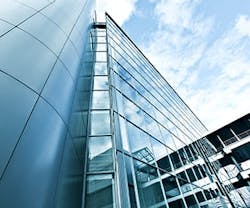U.S. Buildings Improve Sustainability
The U.S. real estate industry is improving its sustainability by focusing on improving energy and water efficiency but continues to trail the global average, according to the Global Real Estate Sustainability Benchmark (GRESB) survey. While global statistics show a 3% reduction in GHG emissions and a 50% increase in on-site renewable energy generation, the average GRESB score for U.S. entities was only a 52, compared to the global average of 56.
High-value energy management practices that are noted in the report include provisions to monitor energy use in data management systems, which were used by 99% of respondents, as well as including energy policies as part of overall sustainability strategies (96%), utility cost sharing (66%), and energy efficiency requirements for tenant improvements (59%).
Popular water improvements include tracking water consumption in data management systems, (95%),including water policies as a specific aspect of sustainability policies (94%), and performing water-related risk assessments for new acquisitions (83%).
Efficiency improvements were not limited to existing building stock, as the GRESB data shows that over 70% of U.S. entities with new construction or major retrofits use energy management practices such as surpassing code energy efficiency requirements, using building commissioning, and upgrading to more efficient equipment and appliances. Additionally, 88% of U.S. respondents incorporate water efficiency requirements such as high efficiency fixtures, low water landscaping, and smart irrigation.
Looking to boost efficiency in your facility? Check out these tips for improving building energy performance, and this guide can help you boost conservation as well.
